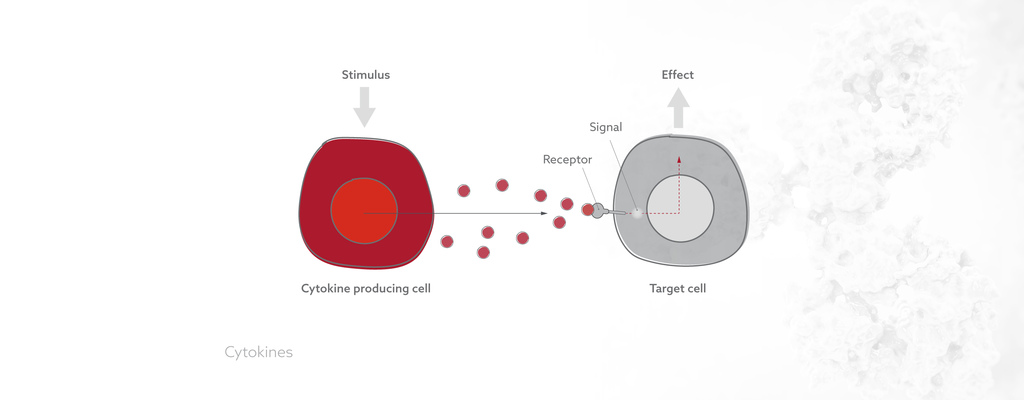Search from website
Search from website
Imagine a molecule that serves as a communication hub within your body, coordinating vital processes in your immune system and playing a key role in inflammation. In this article, we will dive into the world of IL-6, exploring its functions, its involvement in diseases such as rheumatoid arthritis and COVID-19, and the potential it holds for therapeutic interventions.
If you are here for the answer to the quiz only, scroll down to the end of the article.
Interleukins are a group of signaling molecules. They are also known as cytokines and play a crucial role in regulating immune responses and communication between cells. Interleukins are secreted by immune cells (T-cells, B-cells, and macrophages) and other cells in the body (fibroblasts, endothelial cells). These molecules act as mediators, facilitating communication and orchestrating immune responses.

While most of the other interleukins have a specific role, IL-6 has diverse effects on various cells throughout the body. It is present in various tissues and bodily fluids such as blood, saliva, and synovial fluid. IL-6 acts on a wide range of target cells, including immune cells, liver cells, and neurons. It plays a vital role in inflammation, hematopoiesis, regulation of the acute phase response, tissue repair, cell proliferation, differentiation, and survival.
Excessive production or dysregulation of IL-6 has been observed in various diseases. Elevated IL-6 levels have been associated with chronic inflammatory conditions such as rheumatoid arthritis, systemic lupus erythematosus, and inflammatory bowel disease. Furthermore, IL-6 imbalances have been implicated in autoimmune disorders, cardiovascular diseases, neurodegenerative conditions, certain cancers (multiple myeloma and prostate cancer), and infectious diseases.
IL-6 has gained significant attention during the COVID-19 pandemic. In severe cases of COVID-19, excessive production of this cytokine can contribute to a cytokine storm. That leads to widespread inflammation and tissue damage.
Functional IL-6 recombinant protein is available in our webstore.
Due to the significant role of IL-6 in various diseases, researchers have developed therapies that aim to modulate IL-6 activity. Monoclonal antibodies that block IL-6 receptors have shown promise in neutralizing the effects of IL-6 and therefore restoring immune homeostasis. These therapeutic interventions have so far been successful in managing conditions like rheumatoid arthritis and cytokine storm.
In addition to its therapeutic potential, IL-6 also holds promise in diagnostics. IL-6 can serve as a valuable biomarker for disease severity and progression. Measuring IL-6 levels in patients can aid in early detection, monitoring disease activity, and assessing treatment response. For example, IL-6 can be used as a disease severity predictor for COVID-19.
To conclude IL-6 serves as a vital signaling molecule in the intricate web of immune regulation and disease pathogenesis. Its involvement in various diseases makes it an attractive target for therapeutic interventions. By discovering the secrets of IL-6, we can pave the way for innovative treatments and improve our understanding of immune-related disorders.
The answer to the question is: IL-6 is a pro-inflammatory cytokine. However, as you saw from the article IL-6 is much more interesting and its significance extends far beyond inflammation. Find high affinity and specific antibodies against IL-6 in our webstore.
If you’re interested in how our IL-6 could support your diagnostics and research, reach out to us!
Don't forget to follow us on LinkedIn at Icosagen Diagnostics.